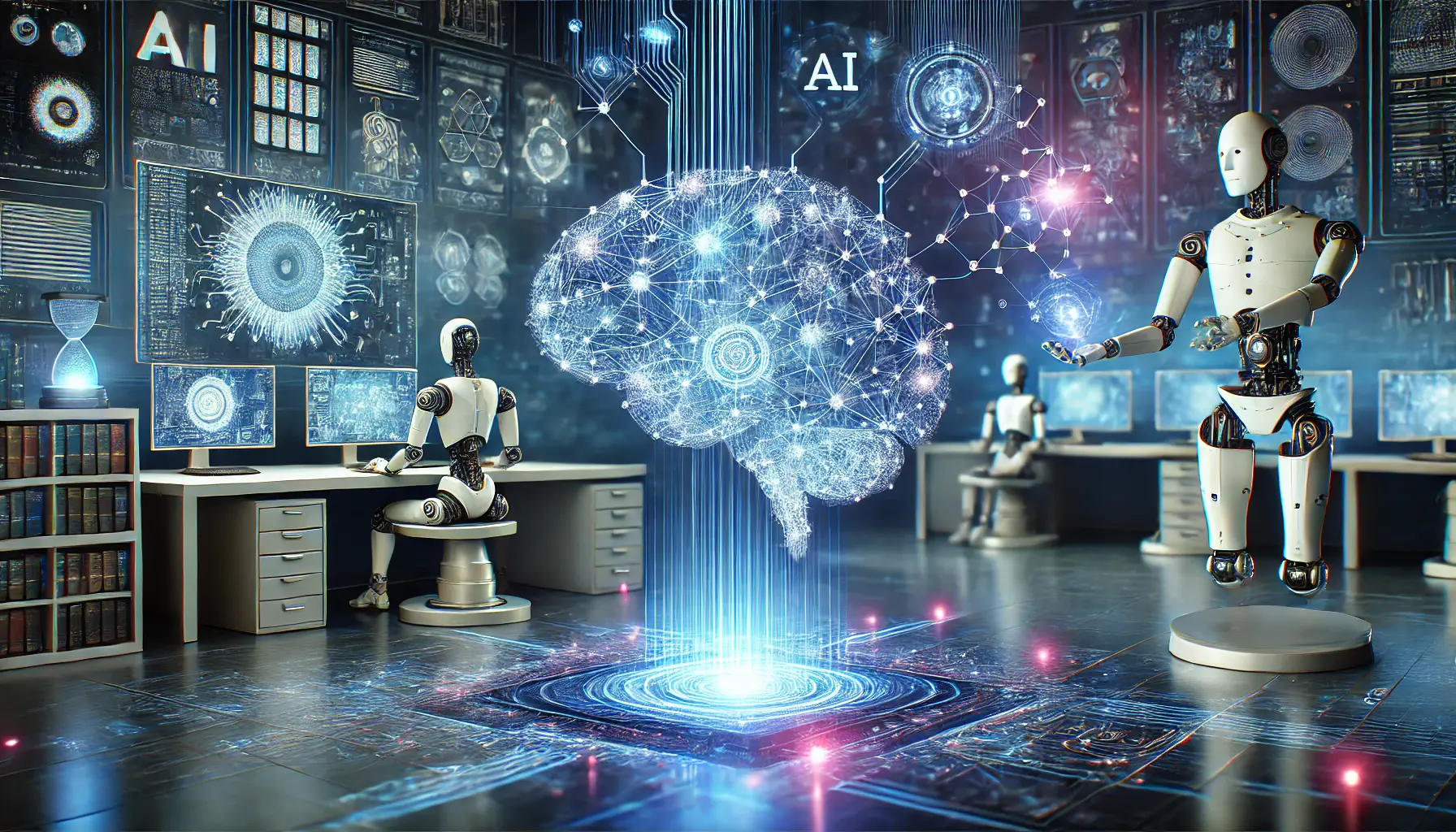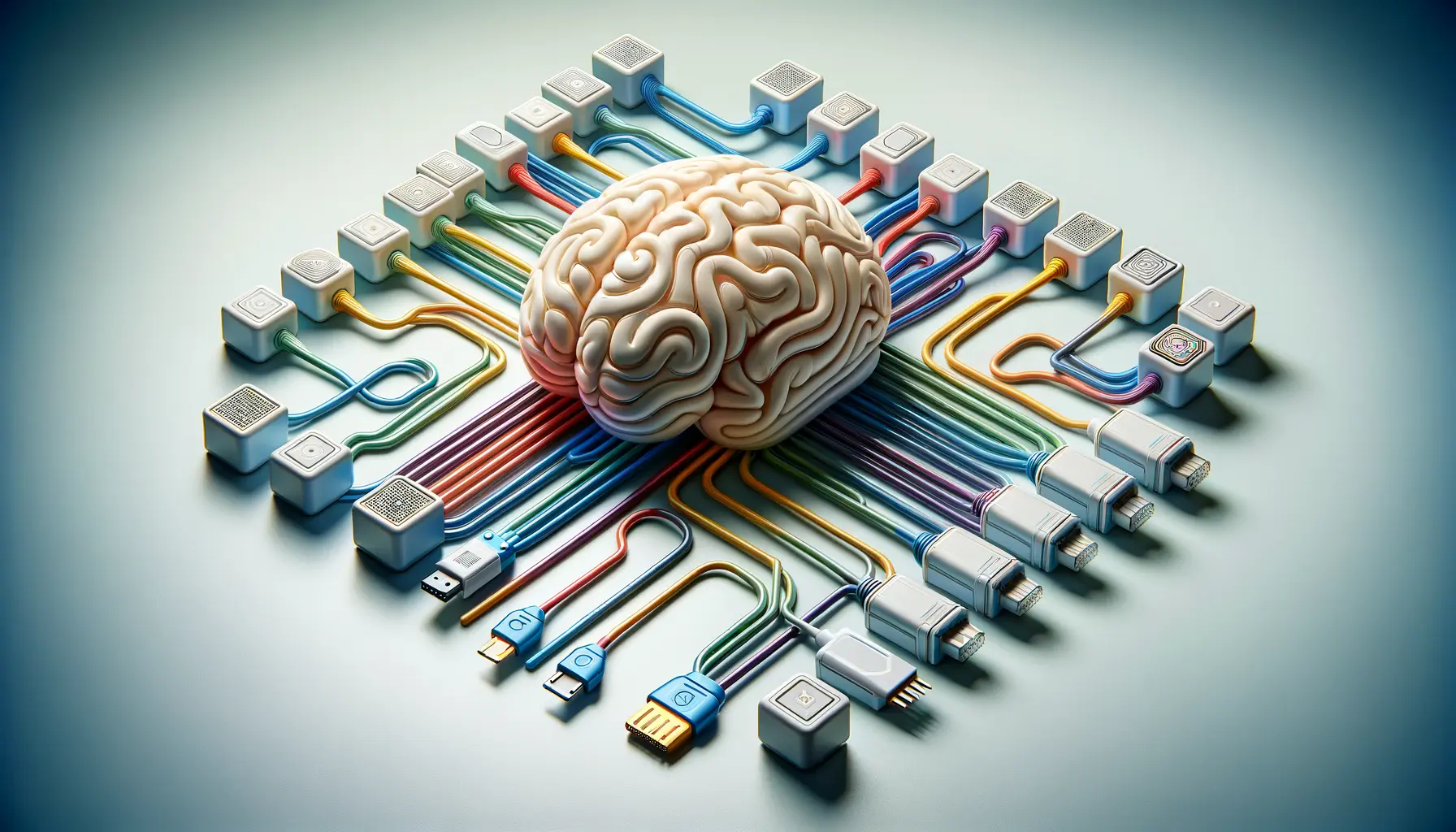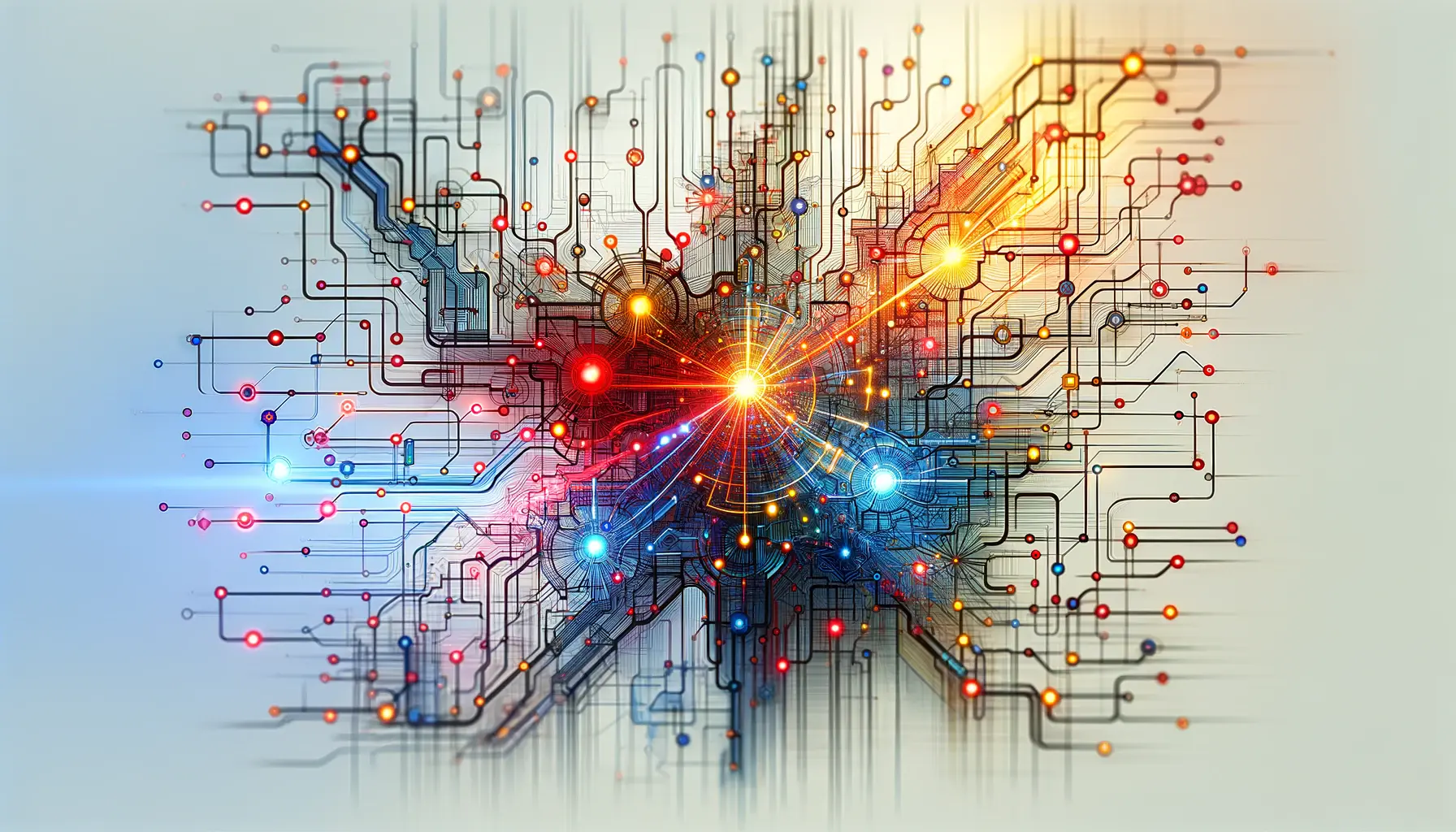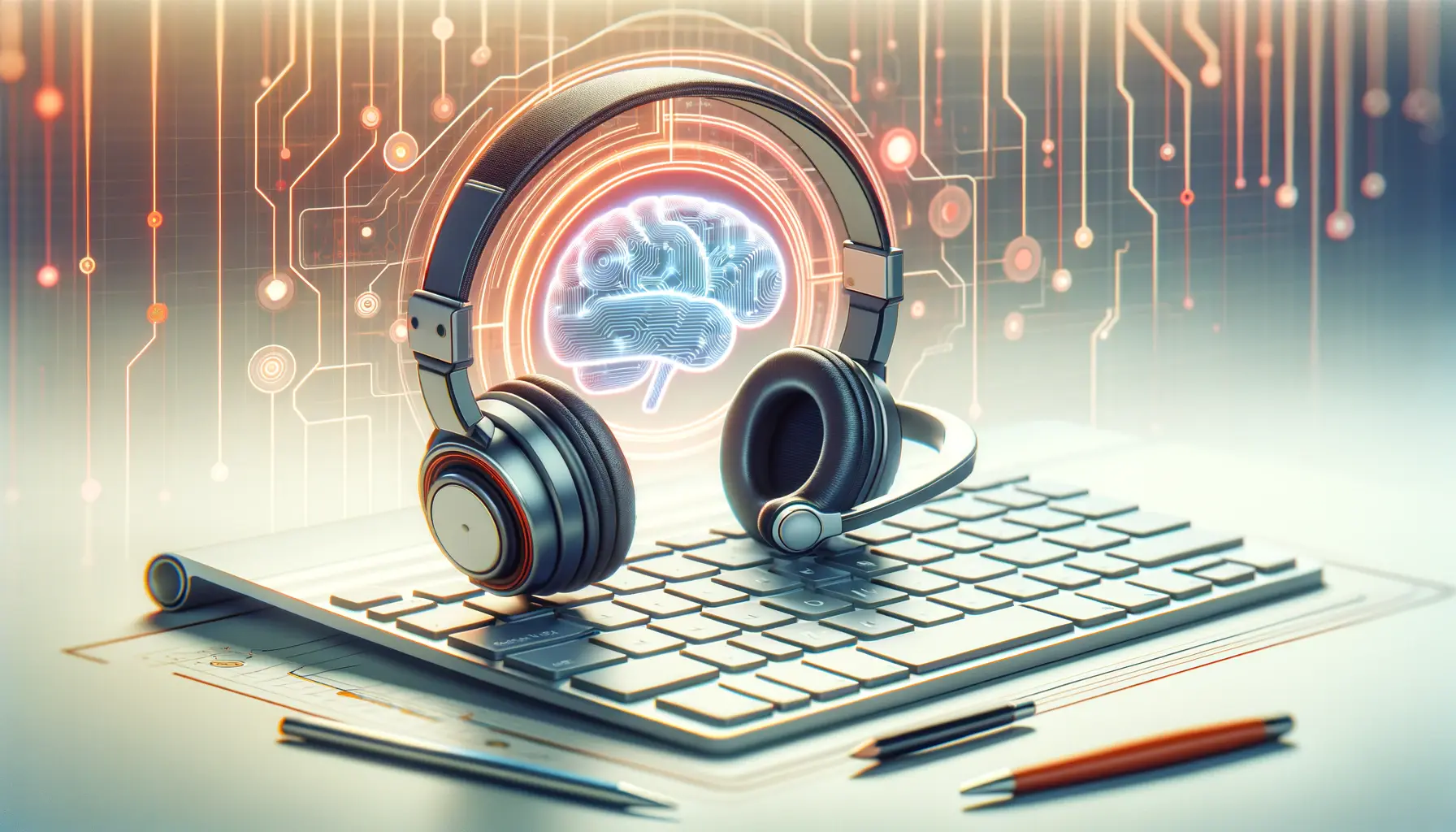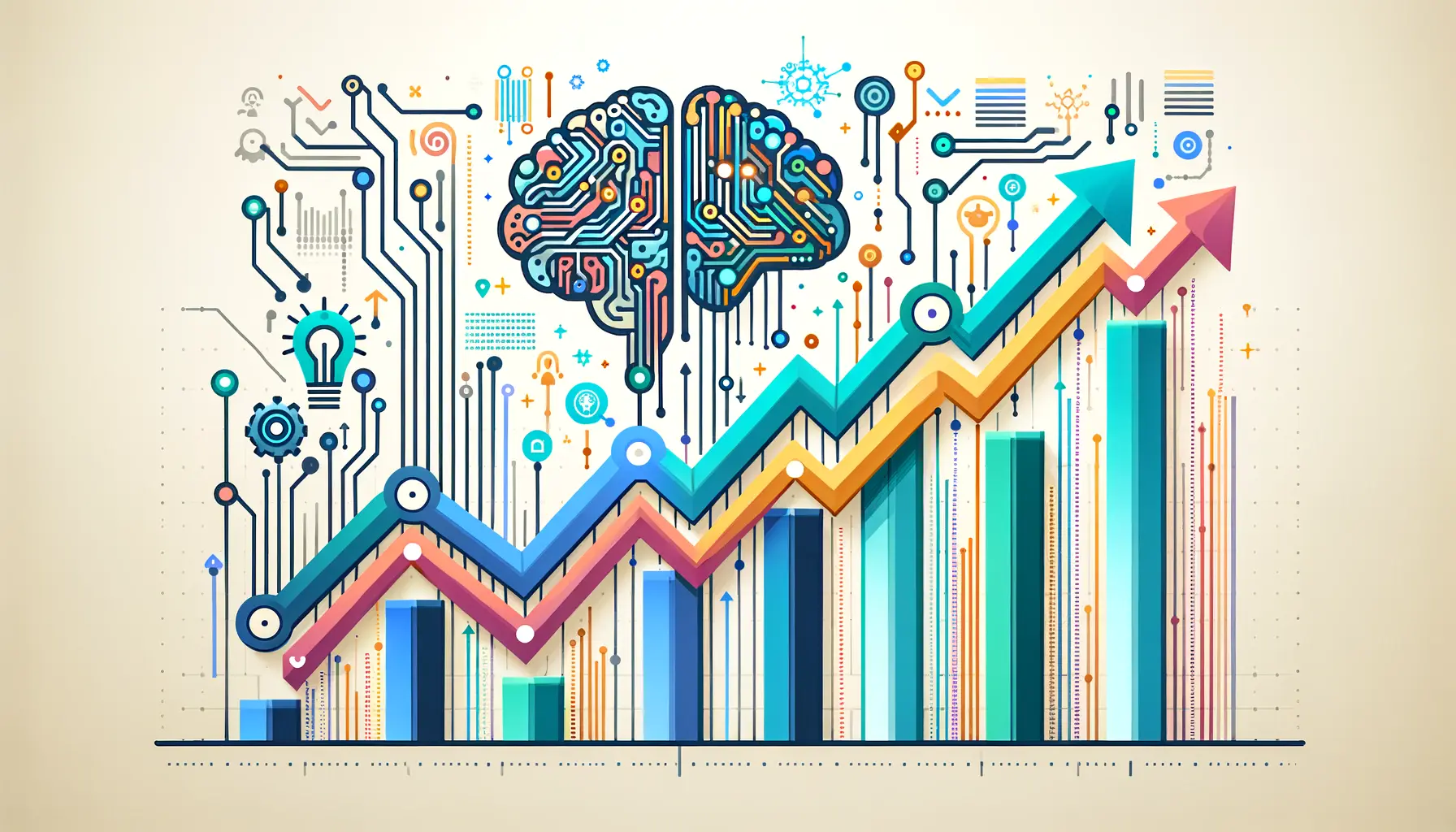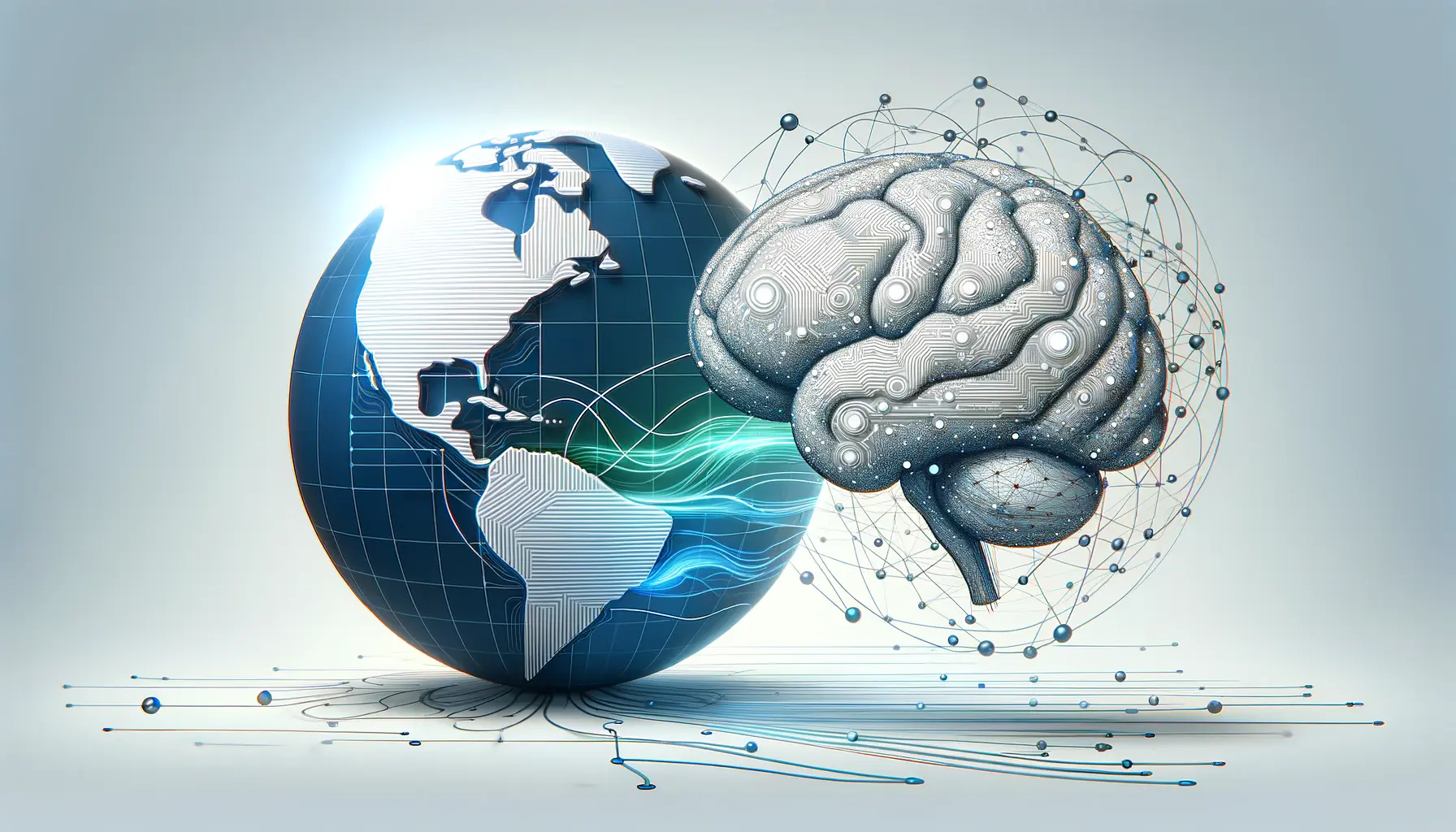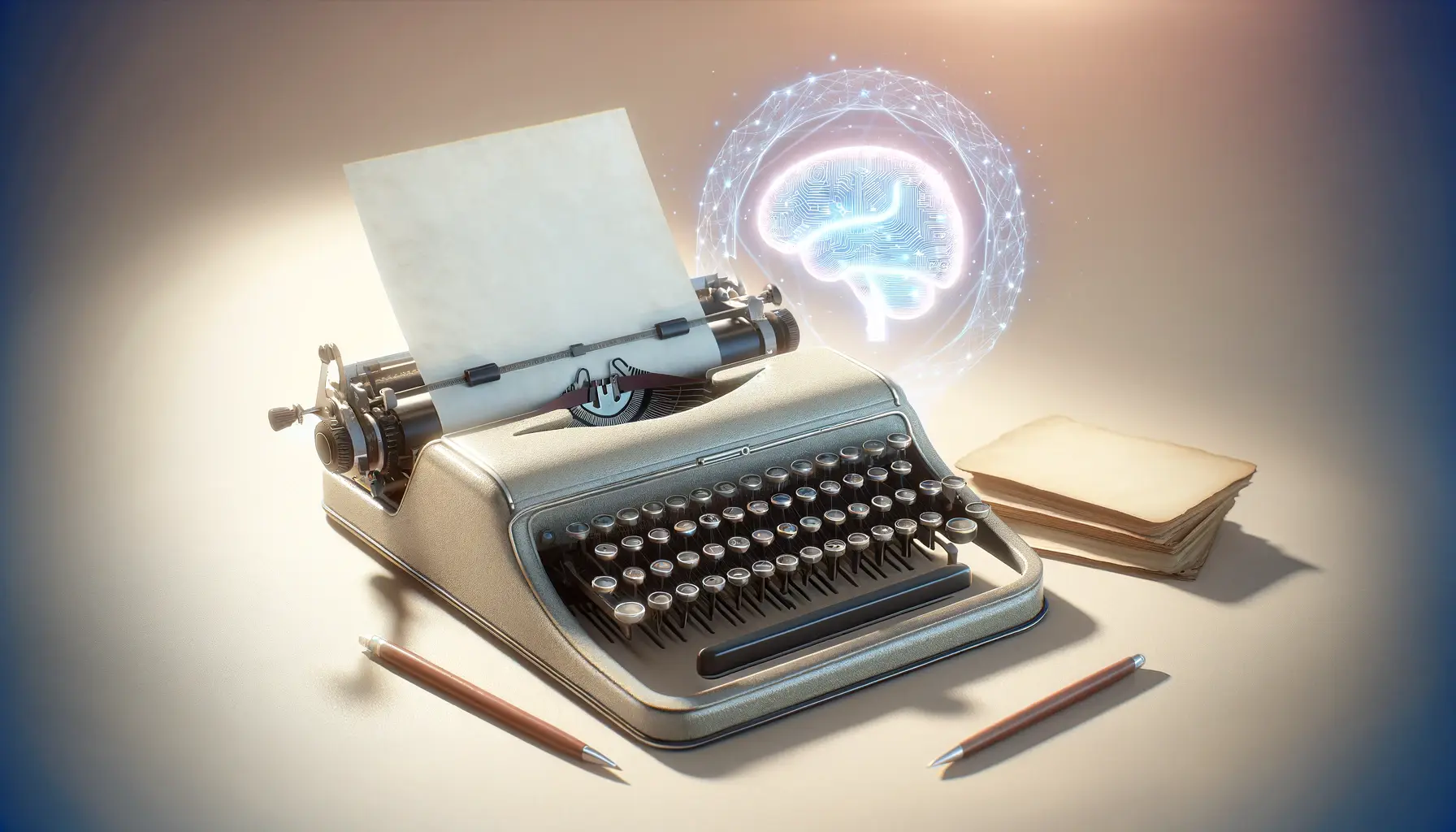The realm of artificial intelligence (AI) is ever-evolving, with innovations and challenges emerging at a rapid pace.
Among the forefront of these advancements is Grok AI, a system that has garnered attention for its unique approach to solving complex problems.
This article delves into the intricacies of Grok AI, focusing on the hurdles it faces and the strategies employed to navigate these challenges.
As we explore the landscape of Grok AI, we uncover the essence of its challenges, shedding light on the obstacles that stand in the way of progress and the innovative solutions that pave the path forward.
The journey of Grok AI is not just about technological advancement; it’s a testament to the resilience and ingenuity of those who dare to push the boundaries of what’s possible.
In this detailed exploration, we aim to provide valuable insights into the challenges faced by Grok AI, offering a comprehensive understanding of the obstacles and the efforts made to overcome them.
Through this lens, we invite readers to grasp the complexities of Grok AI, appreciating the nuanced challenges that come with pioneering in the AI domain.
- Understanding Grok AI’s Core Challenges
- Strategies for Overcoming Data Challenges
- Optimizing AI for Real-World Applications
- Collaboration and Ethical Considerations
- Future Directions and Technological Frontiers
- Challenges in AI Ethics and Governance
- Empowering Through Education and Community Engagement
- Charting the Course: Navigating the Future of Grok AI
- Grok AI Challenges: Frequently Asked Questions
Understanding Grok AI’s Core Challenges
The inception of Grok AI marked a significant milestone in the field of artificial intelligence, introducing a system designed to tackle some of the most pressing issues in AI development and application.
However, with innovation comes challenge, and Grok AI is no exception.
One of the primary hurdles faced by Grok AI is the complexity of developing algorithms capable of self-learning and adaptation in real-time, a cornerstone for achieving true AI autonomy.
Another significant challenge is the integration of Grok AI into existing systems and infrastructures.
The seamless incorporation of AI technologies into diverse sectors requires not only advanced technical solutions but also a deep understanding of the specific needs and constraints of each domain.
This integration challenge is compounded by the need for Grok AI to operate within ethical and regulatory frameworks, ensuring that AI advancements benefit society as a whole without compromising individual rights or safety.
Technical Limitations and Innovations
At the heart of Grok AI’s challenges are the technical limitations inherent in current AI technologies.
Processing power, data storage capacity, and algorithm efficiency are just a few of the technical obstacles that Grok AI must navigate.
To overcome these limitations, Grok AI employs cutting-edge technologies and innovative approaches, such as distributed computing and advanced neural networks, to enhance its processing capabilities and improve algorithmic efficiency.
Moreover, Grok AI is pioneering in the development of self-supervised learning models.
These models represent a significant leap forward, as they allow AI systems to learn and adapt from unstructured data without the need for extensive human annotation.
This approach not only accelerates the learning process but also opens up new possibilities for AI applications in areas previously considered too complex or data-poor for traditional AI methods.
Grok AI’s journey is a testament to the power of innovation in overcoming the technical and integration challenges of artificial intelligence.
Strategies for Overcoming Data Challenges
The lifeblood of any AI system is data.
For Grok AI, the ability to effectively gather, process, and learn from data is crucial.
However, this process is fraught with challenges, from data scarcity and quality issues to privacy concerns and bias.
Addressing these issues requires a multifaceted approach, ensuring that Grok AI can continue to evolve and improve over time.
To navigate the complex landscape of data acquisition and processing, Grok AI employs several key strategies.
These strategies not only aim to enhance the quality and quantity of data available for learning but also to ensure that data is used ethically and responsibly.
Enhancing Data Quality and Quantity
- Data Augmentation: Grok AI utilizes advanced data augmentation techniques to increase the diversity and volume of training data. This involves generating new data points from existing ones through various transformations, thereby enriching the dataset without compromising privacy.
- Crowdsourcing and Partnerships: By collaborating with industry partners and leveraging crowdsourced data, Grok AI gains access to a wider array of real-world data, enhancing the system’s ability to learn from diverse scenarios and environments.
- Advanced Data Filtering: Implementing sophisticated data filtering mechanisms allows Grok AI to ensure the relevance and quality of the data being processed. This step is crucial for minimizing noise and improving the efficiency of the learning process.
Addressing Privacy and Bias
- Privacy-Preserving Techniques: Grok AI incorporates privacy-preserving technologies, such as differential privacy and federated learning, to protect individual data rights while still benefiting from collective insights.
- Bias Detection and Correction: Recognizing the potential for bias in AI systems, Grok AI integrates bias detection algorithms to identify and correct skewed data sets. This proactive approach helps ensure that the AI’s decisions are fair and unbiased.
- Transparent Data Policies: Maintaining transparency about data usage and policies is a cornerstone of Grok AI’s strategy. By clearly communicating how data is collected, used, and protected, Grok AI builds trust with users and stakeholders.
Through these strategies, Grok AI addresses the critical challenges associated with data, laying a solid foundation for the development of a robust and ethical AI system.
The focus on data quality, privacy, and bias not only enhances the system’s performance but also ensures its alignment with societal values and norms.
Effective data management is pivotal for the success of AI systems, requiring innovative solutions to ensure quality, diversity, and ethical use of data.
Optimizing AI for Real-World Applications
The ultimate test for any AI system, including Grok AI, lies in its application in the real world.
The transition from theoretical models to practical solutions involves overcoming a unique set of challenges, from scalability and adaptability to user interaction and impact assessment.
Grok AI’s approach to these challenges is both innovative and pragmatic, focusing on creating solutions that are not only technologically advanced but also accessible and beneficial to a wide range of users.
To ensure that Grok AI meets the demands of real-world applications, several key areas are prioritized.
These include enhancing the AI’s scalability, ensuring its adaptability to various contexts, and fostering positive user interactions.
Scalability and Efficiency
- Modular Design: Grok AI adopts a modular design approach, allowing for scalable solutions that can be tailored to specific needs and easily integrated into existing systems.
- Resource Optimization: By optimizing computational resources, Grok AI ensures efficient processing, even as the volume of data and complexity of tasks increase.
- Cloud Integration: Leveraging cloud technologies facilitates scalability and accessibility, enabling Grok AI to serve a global user base without compromising performance.
Adaptability to Diverse Contexts
- Context-Aware Algorithms: Grok AI develops algorithms that are sensitive to context, allowing for more accurate and relevant responses across different scenarios.
- Continuous Learning: The system is designed for continuous learning, enabling it to adapt to new information and evolving environments over time.
- Customization Capabilities: Grok AI offers extensive customization options, ensuring that it can be adapted to meet the unique requirements of various industries and applications.
Enhancing User Interaction
- User-Centric Design: Grok AI prioritizes user experience, with interfaces designed for ease of use and accessibility, ensuring that users can effectively interact with the AI regardless of their technical expertise.
- Feedback Mechanisms: Incorporating user feedback into the development process allows Grok AI to continuously improve its performance and usability based on real-world experiences.
- Impact Assessment: Regularly assessing the impact of Grok AI on users and industries helps to identify areas for improvement and ensure that the technology is delivering tangible benefits.
By focusing on scalability, adaptability, and user interaction, Grok AI is poised to make a significant impact in the real world.
These efforts ensure that the technology not only advances the field of AI but also provides practical, beneficial solutions to end-users across various sectors.
The transition from theory to practice in AI requires a focus on scalability, adaptability, and user experience, ensuring that AI technologies deliver real-world benefits.
Collaboration and Ethical Considerations
In the journey of advancing Grok AI, collaboration among scientists, engineers, ethicists, and policymakers plays a pivotal role.
This collaborative effort is essential not only for technological advancement but also for addressing the ethical considerations that arise with the development and deployment of AI systems.
Grok AI’s approach to these challenges emphasizes the importance of multidisciplinary cooperation and ethical responsibility.
The integration of ethical considerations into the development process of Grok AI is a testament to the commitment to responsible AI.
This involves a proactive stance on identifying potential ethical issues and implementing strategies to mitigate them.
Building Multidisciplinary Teams
- Diverse Expertise: Grok AI brings together experts from various fields, including AI, ethics, law, and social sciences, to ensure a holistic approach to AI development.
- Collaborative Innovation: By fostering an environment of collaboration, Grok AI encourages the exchange of ideas and solutions that address both technical and ethical challenges.
- Stakeholder Engagement: Engaging with stakeholders, including users, communities, and regulators, ensures that Grok AI’s development is aligned with societal needs and values.
Addressing Ethical Challenges
- Transparency: Grok AI commits to transparency in its algorithms and decision-making processes, allowing for accountability and trust in its applications.
- Privacy Protection: Implementing advanced privacy measures and data protection protocols is a cornerstone of Grok AI’s ethical framework, safeguarding user data against misuse.
- Bias Mitigation: Recognizing the risk of bias in AI, Grok AI incorporates mechanisms for detecting and correcting bias, ensuring fairness and equity in AI outcomes.
Regulatory Compliance and Ethical Standards
- Adherence to Regulations: Grok AI closely follows existing regulations and guidelines related to AI and data protection, ensuring legal compliance in all aspects of its operations.
- Development of Ethical Guidelines: Beyond compliance, Grok AI actively participates in the development of ethical guidelines for AI, contributing to the broader conversation on responsible AI practices.
- Continuous Ethical Assessment: Regular assessments of ethical implications and societal impact guide Grok AI’s development, ensuring that ethical considerations remain at the forefront of innovation.
The collaborative and ethical approach of Grok AI highlights the importance of multidisciplinary teams and ethical considerations in the development of AI technologies.
By prioritizing these aspects, Grok AI not only advances technologically but also ensures that its innovations are beneficial and responsible, contributing positively to society.
Collaboration and ethical considerations are fundamental to the responsible development and deployment of AI technologies, ensuring that they serve the greater good.
Future Directions and Technological Frontiers
The trajectory of Grok AI is not just shaped by its current capabilities but also by the vision for its future.
As we look ahead, the technological frontiers Grok AI aims to explore are vast and varied, encompassing advancements in machine learning, natural language processing, and beyond.
The commitment to pushing the boundaries of what AI can achieve is evident in the strategic planning and innovation that drive Grok AI’s development.
Understanding the potential future directions of Grok AI involves examining the emerging technologies and methodologies that could redefine the landscape of artificial intelligence.
These advancements promise not only to enhance the capabilities of Grok AI but also to open up new possibilities for its application across different sectors.
Advancements in Machine Learning
- Deep Learning Innovations: Grok AI is at the forefront of exploring deep learning innovations, aiming to develop more sophisticated neural networks that can process and analyze data with unprecedented accuracy and efficiency.
- Quantum Computing Integration: The potential integration of quantum computing into Grok AI’s framework could revolutionize its processing capabilities, enabling the system to solve complex problems at speeds previously unimaginable.
- Self-Supervised Learning: Advancements in self-supervised learning techniques are a key focus for Grok AI, aiming to reduce the reliance on labeled data and enhance the system’s ability to learn from unstructured information.
Expanding Applications and Industries
- Healthcare Innovation: Grok AI is exploring applications in healthcare, from diagnostic tools to personalized medicine, aiming to improve patient outcomes and streamline medical processes.
- Environmental Sustainability: Leveraging AI for environmental sustainability is another area of interest, with Grok AI developing solutions for climate modeling, conservation efforts, and resource management.
- Autonomous Systems: The development of autonomous systems, including self-driving vehicles and robotic assistants, represents a significant area of growth for Grok AI, promising to transform everyday life and work.
Enhancing Human-AI Collaboration
- Augmented Intelligence: Grok AI is focused on augmenting human intelligence rather than replacing it, developing tools and systems that enhance human decision-making and creativity.
- Interactive AI: Improving the interactivity of AI systems, Grok AI aims to create more intuitive and responsive interfaces that facilitate seamless human-AI collaboration.
- Ethical AI Governance: As AI becomes more integrated into society, Grok AI is committed to leading the way in ethical AI governance, ensuring that AI technologies are used responsibly and for the benefit of all.
The future of Grok AI is marked by a relentless pursuit of innovation, with a clear focus on exploring new technological frontiers and expanding its impact across industries.
By embracing emerging technologies and prioritizing human-AI collaboration, Grok AI is poised to play a pivotal role in shaping the future of artificial intelligence.
The future of Grok AI lies in its commitment to innovation, exploring new technological frontiers, and expanding its applications to benefit society as a whole.
Challenges in AI Ethics and Governance
As Grok AI continues to evolve, it faces not only technological challenges but also complex ethical dilemmas and governance issues.
The rapid advancement of AI technologies brings to the forefront questions about moral responsibility, societal impact, and the governance frameworks necessary to ensure that AI benefits humanity while minimizing risks.
Addressing these challenges is crucial for the sustainable development of Grok AI and the broader AI ecosystem.
The ethical and governance challenges associated with Grok AI encompass a wide range of issues, from ensuring fairness and transparency to protecting privacy and preventing misuse.
These challenges require thoughtful consideration and action to navigate successfully.
Ensuring Fairness and Transparency
- Algorithmic Accountability: Grok AI is committed to developing algorithms that are accountable and transparent, making it possible to trace decisions back to their source and understand the rationale behind AI-generated outcomes.
- Fairness in AI: Ensuring that Grok AI’s algorithms are free from bias and discrimination is a priority, requiring ongoing efforts to identify and mitigate any factors that could lead to unfair outcomes.
Protecting Privacy and Security
- Data Privacy: With the vast amounts of data processed by Grok AI, safeguarding user privacy is paramount. This involves implementing robust data protection measures and adhering to strict privacy standards.
- Security Against Misuse: As AI technologies become more powerful, the potential for misuse increases. Grok AI is actively developing security measures to prevent malicious use of AI, ensuring that its technologies are used for positive purposes.
Developing Effective Governance Frameworks
- Regulatory Collaboration: Grok AI engages with regulators and policymakers to develop effective governance frameworks that support innovation while protecting public interests.
- Global Standards: Recognizing the global nature of AI, Grok AI advocates for the development of international standards and guidelines to ensure consistent and ethical use of AI technologies worldwide.
- Stakeholder Engagement: Involving a broad range of stakeholders in the governance process helps to ensure that diverse perspectives are considered, making AI governance more inclusive and effective.
The ethical and governance challenges facing Grok AI are significant, but they also present opportunities to lead by example in the responsible development and use of AI technologies.
By addressing these challenges head-on, Grok AI aims to contribute to a future where AI is developed and governed in a way that maximizes benefits for society while minimizing risks.
Ignoring the ethical and governance challenges of AI can lead to unintended consequences, underscoring the importance of responsible AI development and use.
Empowering Through Education and Community Engagement
One of the most powerful tools in addressing the challenges and maximizing the benefits of Grok AI lies in education and community engagement.
By fostering a well-informed public and actively engaging with the broader community, Grok AI aims to democratize AI knowledge, encourage responsible use, and inspire innovation across various sectors.
This approach not only helps in overcoming obstacles but also in harnessing the collective potential of AI for societal good.
Education and community engagement are pivotal for building a sustainable ecosystem around Grok AI, where individuals and organizations are empowered to leverage AI technologies effectively and ethically.
Expanding AI Literacy
- Public Education Initiatives: Grok AI supports initiatives aimed at increasing AI literacy among the general public, ensuring that people understand the basics of AI, its potential, and its limitations.
- Specialized Training Programs: For professionals and students, Grok AI offers specialized training programs that delve deeper into AI technologies and their applications, preparing the next generation of AI experts.
Building Collaborative Communities
- Open Innovation Platforms: Grok AI fosters open innovation by providing platforms where researchers, developers, and enthusiasts can collaborate, share ideas, and co-create AI solutions.
- Industry Partnerships: By partnering with various industries, Grok AI facilitates the exchange of knowledge and resources, driving forward the practical application of AI in real-world scenarios.
Encouraging Ethical Use and Innovation
- Ethical Guidelines and Resources: Grok AI develops and disseminates ethical guidelines and resources, encouraging the community to adopt responsible AI practices.
- Innovation Challenges: Through competitions and challenges, Grok AI stimulates innovation, inviting the community to develop AI solutions that address societal issues.
Through education and community engagement, Grok AI not only addresses the immediate challenges of AI development and application but also lays the groundwork for a future where AI is integrated into society in a way that is beneficial, ethical, and sustainable.
By empowering individuals and communities with the knowledge and tools to engage with AI, Grok AI is helping to shape a world where technology serves humanity’s best interests.
Education and community engagement are key to unlocking the full potential of AI, ensuring its development and application are guided by knowledge, ethics, and collaboration.
Charting the Course: Navigating the Future of Grok AI
The exploration of Grok AI challenges and the strategies to overcome them reveals a landscape filled with both obstacles and opportunities.
As we have delved into the intricacies of Grok AI, from its core challenges to its future directions, a comprehensive picture has emerged.
This picture not only highlights the complexities of developing and implementing AI technologies but also underscores the potential of Grok AI to revolutionize various sectors and contribute to societal advancement.
Key Takeaways and Future Prospects
The journey through the challenges of Grok AI has illuminated several key areas, including the importance of addressing technical limitations, the need for ethical considerations, and the power of community engagement.
Each of these areas presents its own set of challenges but also offers unique opportunities for growth and innovation.
- Technical advancements in Grok AI are pushing the boundaries of what is possible, opening new frontiers in AI research and application.
- Ethical considerations and governance frameworks are becoming increasingly important as AI technologies become more integrated into our daily lives.
- Education and community engagement are crucial for ensuring that the benefits of Grok AI are accessible to all, fostering an environment where innovation can thrive.
Looking ahead, the future of Grok AI is bright, with endless possibilities for innovation and impact.
The commitment to overcoming challenges and leveraging opportunities is what sets Grok AI apart, positioning it as a leader in the AI revolution.
Embracing the Future with Optimism and Responsibility
As we stand on the brink of a new era in artificial intelligence, the journey of Grok AI serves as a beacon, guiding the way toward a future where AI technologies are developed and used responsibly, ethically, and for the greater good.
The challenges faced by Grok AI are not insurmountable; rather, they are stepping stones on the path to achieving remarkable breakthroughs that could transform our world.
In conclusion, the exploration of Grok AI challenges and the strategies to overcome them offers valuable insights into the future of artificial intelligence.
By addressing these challenges head-on and harnessing the power of innovation, collaboration, and ethical consideration, Grok AI is not just navigating the complexities of AI development; it is charting a course toward a future where AI enhances our capabilities, enriches our lives, and propels society forward.
The journey of Grok AI is a testament to the transformative power of artificial intelligence, and it is a journey that we can all look forward to with anticipation and optimism.
Grok AI Challenges: Frequently Asked Questions
Explore the most common inquiries surrounding Grok AI and its challenges, providing insights into this groundbreaking technology.
Grok AI is an advanced artificial intelligence system designed to tackle complex problems with innovative learning algorithms and data processing capabilities.
Grok AI employs deep learning and self-supervised learning models to analyze data, learn from it, and make predictions or decisions without extensive human input.
Grok AI was developed by a team of AI researchers and engineers committed to pushing the boundaries of artificial intelligence technology.
The main challenges include developing self-learning algorithms, integrating AI into various industries, and addressing ethical considerations in AI deployment.
Grok AI stands out for its ability to process and learn from unstructured data, making it a powerful tool for solving a wide range of complex problems.
Yes, Grok AI’s versatile design allows it to be adapted for use across various sectors, including healthcare, finance, and environmental sustainability.
Grok AI offers significant advancements in efficiency, accuracy, and problem-solving capabilities, potentially transforming industries and enhancing human decision-making.
Grok AI incorporates ethical guidelines, privacy measures, and bias mitigation strategies to ensure responsible development and application of AI technologies.

